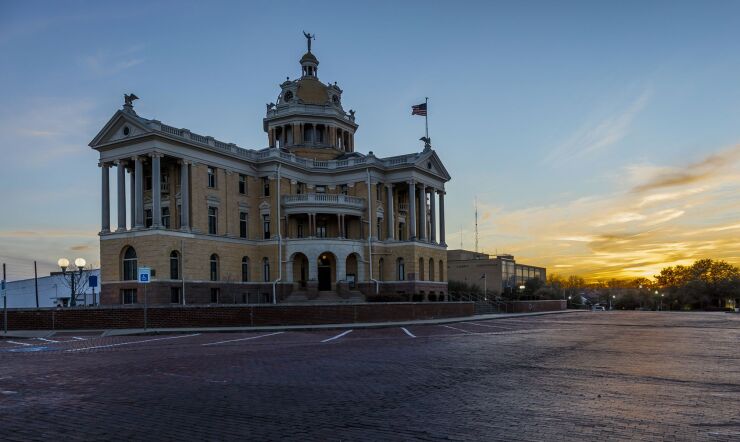Texas lawmakers grilled finance industry executives they summoned to a remote corner of the Lone Star State for a hearing Thursday, questioning whether their environmental, social and governance policies are hindering state pension investments.
The GOP-led committee on state affairs called the hearing amid growing concern in the party that financial firms are pushing a "woke" ideology with investing rules tied to ESG issues. They summoned officials from BlackRock, State Street and Institutional Shareholder Services to defend their practices before a committee made up of seven Republicans and two Democrats.

Republican state Sen. Lois Kolkhorst cited a
"We have a commitment to our retired teachers and we have a commitment to our retired state employees to do better with our money," Kolkhurst said at the hearing in Marshall, in eastern Texas. The state is the nation's largest energy producer.
BlackRock's head of external affairs, Dalia Blass, stood by the firm's record in handling the assets of its clients in the state.
"We are really proud of our performance for the Texas institutions that have entrusted us with their money," Blass told the panel. "We have one bias: to get the best risk-adjusted returns for our clients."
The setting, chosen because it's in the district represented by the panel's chair, was unusual for Wall Street. With a population of almost 25,000, Marshall is 150 miles (241 kilometers) east of Dallas, 70 miles south of Texarkana and about as far as can be from the world of high finance.
The committee is focused on how ESG policies may impact Texans' retirement savings, but the investigation is part of a broader effort by GOP officials around the country to push back against what they see as progressive ideologies among corporations. New York-based BlackRock, the world's largest asset manager, is a frequent target.
Florida's chief financial officer has urged state pension funds to remove BlackRock as an asset manager over ESG concerns, while Louisiana and Missouri have pulled a combined $1.3 billion from the company this year. In August, Texas included the firm on a
The firms have struggled with how to respond, often trying to assure conservative critics that they embrace fossil fuels while at the same time telling environmentalists they're committed to helping to fight climate change. Vanguard Group recently
"We do not pick and choose what to invest in," Lori Heinel, global chief investment officer for State Street Global Advisors in Boston, told the committee. "More specifically, we do not discriminate against energy companies, or any other sector."
ESG's impact on the fossil-fuel industry is of particular concern to lawmakers worried that it could dry up funding sources. In August, the committee sent letters to the four firms asking for documents and testimony from executives related to their investing and consulting practices and any impacts on state pensions.
"When there's no funding for energy projects, energy projects don't get done, energy costs go up, jobs go away and the cost of everything we buy goes up," committee Chairman Bryan Hughes said Thursday. "This is real. This is family security. This is national security."
Republicans in the U.S. Senate have also homed in on how the biggest asset managers use their stakes in public companies to cast proxy votes, alleging they favor a "liberal political agenda," according to a report from Banking Committee staff. They called for congressional probes into how the firms influence corporate policies on carbon emissions reduction, board diversity or racial-equity audits.
— With assistance from Saijel Kishan.






